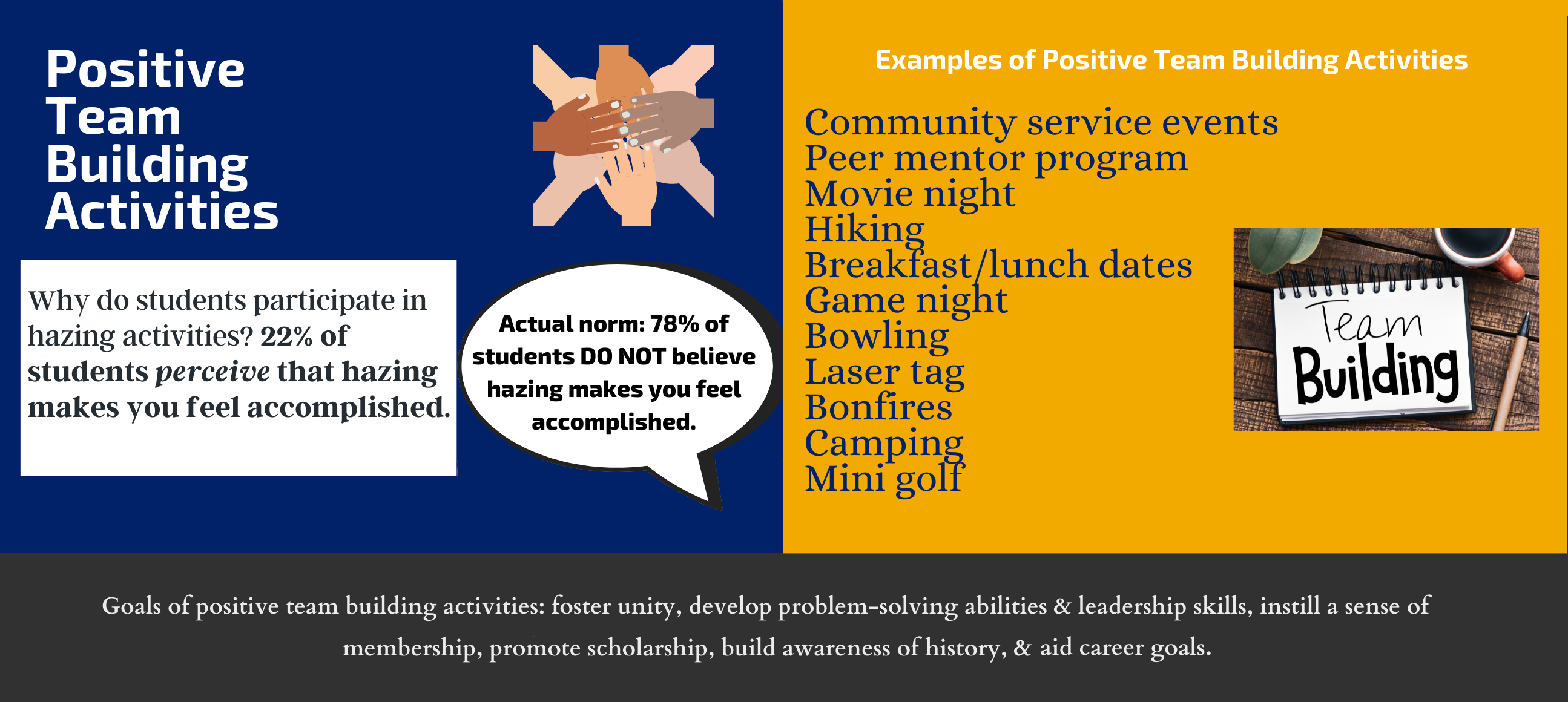
Recognize
Know how to identify hazing.
Prevent
Understand what you can do to help stop hazing.
Report
Know where and how to report hazing.
Hazing Prevention Framework
The Emory hazing prevention task force views hazing as a form of interpersonal violence, a public health issue to be addressed holistically and comprehensively with a whole campus approach. Our work in hazing prevention is evidence-based and includes working to engage at the undergraduate level and with graduate schools.
-
The eight components (outer circle) of the Hazing Prevention framework include: commitment, capacity, assessment, planning, evaluation, cultural competence, sustainability, and implementation of all hazing prevention initiatives. These are based on prevention science and findings from a research to practice project done by Stop Hazing.
-
The inner circle of the Initiatives include: leadership and culture change strategies, policy, education, positive team building, ethical leadership, reporting options, response, support for those who are hazed, and transparency regarding violations.
*Note: Cornell University’s Hazing Prevention Model initiatives were adapted into Emory’s model with the addition of ethical leadership and renamed “enforcement” to “response” to encompass all response options.
-
Emory uses a public health framework that combines components of Stop Hazing’s Hazing Prevention Framework - the outer circle - and adapted Cornell University’s hazing prevention model initiatives – the inner circle. This integrated model we developed for Emory includes campus-wide comprehensive hazing prevention.
-
Preventing hazing requires a comprehensive approach involving multiple strategies. Effective prevention requires understanding the complex factors that contribute to hazing. This approach incorporates the social ecological model of addressing hazing through the interplay at the individual level, campus and surrounding community, national organizations, state level, and the broader society.
Building Healthy Organizations, Teams, and Clubs

-
Hazing is believed to provide positive outcomes like increasing closeness and unity of a group, overcoming challenges and individual growth, and continuing traditions.
-
In reality, hazing does not accomplish the outcome groups are longing for. It is possible to achieve these outcomes through different positive team building activities without the damaging and negative effects of hazing.
-
Social norms can directly have an impact on how students perceive hazing on their campus.
-
Why do students participate in hazing activities? 22% of students perceive that hazing makes you feel accomplished. The actual norm is that 78% of students DO NOT believe hazing makes you feel accomplished.
-
Understanding the difference between perceived vs. actual norms can allow for students to make better decisions regarding their willingness to participate in hazing activities.
-
It is important to strive for positive team building strategies that foster unity, develop problem-solving abilities and leadership skills, instill a sense of membership, promote scholarship, build awareness of history, and aid career goals. Some positive team building activities to prevent hazing include:
-
Participate in campus and community service projects/events
-
Have new and current members work together to create events
-
Encourage participation in school and campus activities outside of the organization
-
Develop a peer mentor program among current and new members
-
Plan special events or get-togethers such as movie nights
-
Host monitored study and homework sessions on campus
Citations:
Prevention Resources
If you are interested in learning more about hazing prevention, resources are listed below.
Office of Health Promotion (OHP)
- Email: ohp@emory.edu
- Phone: 404-727-1000
Student Involvement, Leadership, and Transitions (SILT)
- Email: silt@emory.edu
- Phone: 404-727-6169
Support Resources
Emory Police Department (EPD)
-
If you are in danger due to a hazing incident and/or need to report a hazing incident in progress please contact Emory Police Department (EPD) EMERGENCY - 404-727-6111.
- Provides survivor-centered services to students after an incident through support, information on student reporting options and rights, accompaniment, and connection resources
